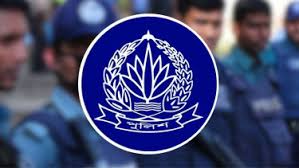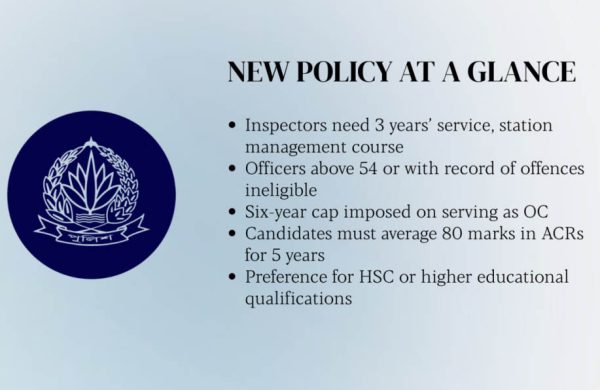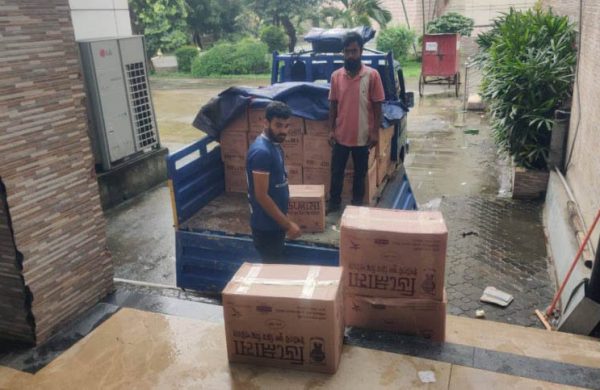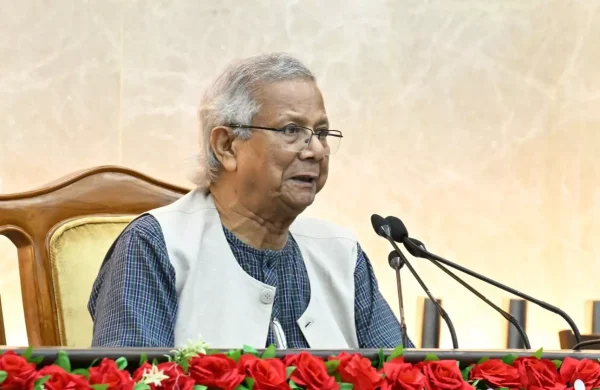BTCL’s 5-G project: Special assistant Faiz pushed procurement that Nahid had stopped
- Update Time : Sunday, July 27, 2025
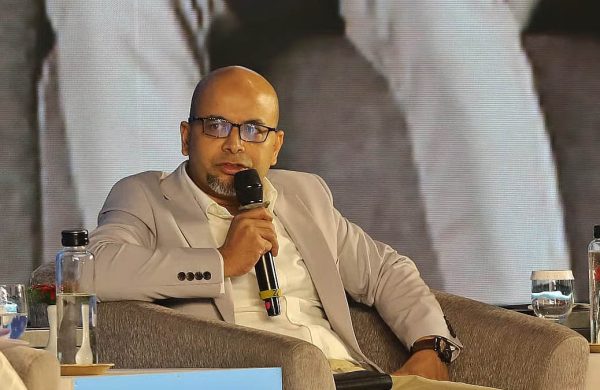
TDS Desk:
An allegation of corruption was raised in a project of Bangladesh Telecommunication Company Limited (BTCL) during ousted Awami League government.
After Awami League was toppled in a mass uprising, interim government’s Post and Telecommunication Adviser Md Nahid Islam stopped the procurement process of that project and took initiative to investigate the corruption allegation.
Before the Anti-Corruption Commission (ACC) could conclude its investigation, Faiz Ahmad Taiyeb, Special Assistant to the Chief Adviser on Posts, Telecommunications and Information Technology, has started preparing to procure equipment for the project. He has also been accused of attempting to influence the ACC.
On 9 January, the ACC decided to investigate the project of BTCL. A five-member committee led by ACC Director SMM Akhtar Hamid Bhuiyan is conducting the probe. Despite the ongoing investigation, Faiz Ahmed met with the ACC Chairman and also sent a letter to him to push for the procurement. He is also accused of using special tactics to proceed with the purchase.
The project in question is titled “Development of BTCL’s Optical Fiber Transmission Network for 5G Readiness”, widely known as the 5G Readiness Project. BTCL installs optical fiber and related equipment across the country and leases them to internet service providers. This project aimed to expand their capacity.
According to BTCL and ACC sources, the project was launched in February 2022 with an estimated cost of Tk 10.6 billion. Of that, Tk 4.6 billion was allocated for equipment. The financial proposals from three bidding companies were evaluated in just four days, and the Chinese company Huawei Technologies was awarded a Tk 3.26 billion contract—even though none of the bidders met all tender requirements. Nevertheless, the technical committee deemed all of them eligible.
A study of Bangladesh University of Engineering and Technology (BUET) revealed that equipment with five times the required capacity was being procured, violating the approved DPP (Development Project Proposal) and risking waste of public funds. Additionally, sensitive evaluation information was allegedly leaked to influence the process via the then Minister Mustafa Jabbar and Secretary Abu Hena Morshed Zaman. Then-BTCL Managing Director Asaduzzaman responded by canceling the tender and calling for a new one. He also rejected bids from two Chinese firms for breaching confidentiality.
Mustafa Jabbar later accepted the tender cancellation during an ADP (Annual Development Program) review meeting. This led to a conflict with the then-Secretary of the Telecom Division. As Board Chair, the Secretary pressured MD Asaduzzaman through board meetings. Failing to get his way, he eventually removed Asaduzzaman and filed a departmental case against him. A new MD was appointed, and Huawei was awarded the contract again.
Documents show that then-Joint Secretary Tayyabur Rahman obtained a letter about the tender status via email from the project director and submitted it to the board. The Telecommunications Department began pressuring Asaduzzaman. Later, Abu Hena and Tayyabur co-authored a book in February 2024 titled ‘The Unstoppable Journey of Smart Bangladesh and Other Issues’, dedicating it to Bangabandhu Sheikh Mujibur Rahman and then Prime Minister Sheikh Hasina.
In June 2024, Abu Hena was transferred to the Local Government Division as Secretary but was sent into forced retirement by the current government. Tayyabur continues as Joint Secretary of the ICT Division, while also serving as Project Director of EDGE (Enhancing Digital Government and Economy) and Director General of the National Cyber Security Agency.
FAIZ AHMED’S MOVES
Following the mass uprising on 5 August last year that led to the fall of Sheikh Hasina’s government, Nahid Islam was appointed as Adviser to the Ministry of Posts, Telecommunications, and ICT. On 25 February, 2025, he resigned to join a new political party. On 5 March, Faiz Ahmed Tayyab was appointed to the role of Special Assistant to the Chief Adviser. Soon after assuming the office, he initiated efforts to import the equipment procured during the Awami League era. As per tender rules, equipment must be inspected at the factory before import. Four engineers were supposed to visit Huawei’s factory in China.
Investigation revealed that within 20 days of his appointment, Huawei wrote to the BTCL MD regarding factory inspection. BTCL then sought legal advice (on 27 March, 2025) from a private legal firm regarding how to proceed, even though it has an internal legal panel. Sources say the private firm was not informed about past corruption allegations, resulting in a favorable opinion.
When they later learned about the irregularities, they revised their opinion (8 April, 2025), citing legal provisions under PPA 2006 Section 64 and PPR 2008 Rule 127 applicable to projects under investigation.
Faruk Hossain, procurement expert and former Director General of Central Procurement Technical Unit (CPTU) that these provisions of PPA and PPR allow for legal action. The advisory firm reminded BTCL of this, warning them against proceeding. Typically, government officials avoid procurement in such cases.
FAIZ’S LETTERS TO ACC
Faiz Ahmed, however, persisted. On 13 April, he met the ACC Chairman and handed over a letter, requesting favourable opinion to proceed with procurement. But on 18 June, 2025, the ACC stated that the initial probe had found violations of the procurement law, and advancing the procurement would be legally unsound.
Just four days later, on 22 June, Faiz wrote to the ACC Chairman again, justifying why the project must go ahead and appealing for his personal attention and cooperation.
To obtain his comments, emailed Faiz and the Telecommunication Division’s PRO on 16 July, followed by phone calls and texts. When visiting the ICT Division, the reception desk said Faiz was not in the office. PRO Muhammad Jasim Uddin said a written response would be sent, but as of Saturday, it hadn’t been received.
Jasim Uddin told journalist on Monday that Faiz held a press conference on 7 July and presented his argument. Faiz told that press conference that BTCL’s capacity must be expanded or it would fail in the market. He reiterated that he only sought ACC cooperation, denying giving any instructions.
Faiz spoke on many other issues at that press conference. Amid back-and-forth letters between ACC and the Telecommunications Division, BTCL on 16 April again wrote to the division seeking approval to send five, instead of four, personnel for factory inspection. The new list included two from BTCL and three from the division.
Investigation sources say the officials of Telecommunications Division were included to the list to ingratiate them. However, they didn’t go because the Chief Adviser’s Office blocked the government order (GO).
Meanwhile, Faiz visited China on 6–9 May with his private secretary, under the sponsorship of an little-known group called “Chinese Enterprises Association Members in Bangladesh.” The GO mentioned it was a learning visit on ICT infrastructure.
On 18 May, Huawei informed BTCL in writing that it learnt that the top government authorities hadn’t approved the factory visit, so it would self-certify the equipment. On 19 May, Huawei informed that the fund kept for factory inspection would be adjusted and requested shipment clearance.
Records show the letter dated 15 May—cited by Huawei—was exchanged internally between BTCL and the Telecommunication Division. Contacted Huawei’s Dhaka office to how it obtained the internal letter. The company, in written response, claimed to receive a formal letter from the project office on 15 May. Huawei claimed it learned about objection on factory inspection from that letter.
BTCL was asked on 21 July as to how its internal letter reached Huawei but has not responded as of now.
BTCL sought the Telecommunication Division’s opinion on Huawei’s shipment clearance request. On 25 May, the division sent a letter citing Faiz’s instructions—suggesting the equipment’s 5G compatibility and 12-year service life be reviewed by experts. It also referred to GCC Clause 38.4 (related to shipment without factory inspection).
As per rules, factory inspection can only be skipped if it’s impossible. BTCL did not approve shipment directly but instead forwarded the letter—bearing Faiz’s instructions—to Huawei on 26 May.
Huawei seized the opportunity and shipped the equipment. On 16 June, they informed BTCL that the equipment was en route to Chattogram Port, expected to arrive on 22 June. Whether the shipment has arrived is still unconfirmed.
Banking sources say no import documents have been submitted yet, so there’s no question of payment. ACC had earlier collected relevant documents from the bank. The bank remains unsure whether to release payment if documents are eventually submitted.
“FACILITATING CORRUPTION”
If BTCL refuses to accept the equipment now, it may face legal complications. If it accepts, it risks waste of public funds and corruption.
TIB Executive Director Iftekharuzzaman told journalist that pushing procurement in a project under ACC investigation facilitates corruption.
If the government fears financial loss from not buying the equipment, has there been a cost-benefit analysis?” he asked.
Iftekharuzzaman said the right approach would have been to review the entire project through an independent expert panel.
Proceeding with procurement without doing so raises suspicions of ulterior motives, he added.



